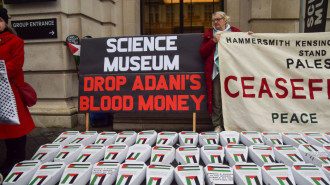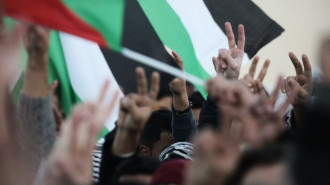
No love lost in the people-to-people connection: Indian and Pakistani fans forever united through shared cultural hits

On an uneventful summer day, with no news related to borders, Fawad Khan, the Pakistani actor, started trending on Twitter in India.
Soon it turned into a kerfuffle, with almost everyone posting and retweeting a 40-second clip of the gorgeous actor, in a short scene from the enormously popular Disney+ series Ms. Marvel.
Frenzied Indian fans of Ms. Marvel's actor swooned over the tiny clip circulating, and one assumed it was simply an expression of fandom from this part of the world.
Cut to beautiful actress Mahira Khan's Instagram video from a recent award ceremony in Ontario. A click on the likes revealed endless adulation, many from India and or the diaspora.
"The South Asian diaspora in the UK, US, Canada, Middle East and elsewhere have imprinted syncretic and well-observant multiculturalism that back home isn’t frequent"
The popularity of actors from both countries demonstrates that, despite their complex geopolitical relationship, there is no love lost in the people-to-people connection between India and Pakistan, as evidenced by the popularity of the Pakistani drama series and Coke Studio Pakistan.
To actually know how popular Pakistani dramas have been in India and across the diaspora, one needs to simply click on any random drama episode on YouTube only to be bewildered with staggering views in millions, unending comments of mutual appreciation, and noticeable icons of red hearts dotting the dialogue boxes below the main window.
There has always been something very relatable about Pakistani drama series that has compelled Indian audiences to watch them worldwide.
Interestingly, the South Asian diaspora in the UK, US, Canada, Middle East and elsewhere have imprinted syncretic and well-observant multiculturalism that back home isn’t frequent and yet even on the home turf, both in India and Pakistan, sentiments have run high when it comes to dramas with Coke Studio vying for simultaneous attention.
Perhaps it has been the storylines, realistic performances, and enchanting music that have appealed to Indian viewers since their early television days in the 1980s.
Dhoop Kinare (At the Edge of Sunshine), one of the now-cult series, was a big hit in India. Aired on Pakistan’s state-run media PTV in 1985 it was a drama series around a minimal love story of two doctors with age differences.
Female viewers both in India and Pakistan found a heartthrob in pensive Dr Ahmer, the male protagonist, while men were fascinated by the character of Zoya, a medical intern, a silent rebel breaking norms.
The plot was ahead of its time, and even inspired an Indian remake titled Kuch Toh Log Kahenge (People Will Anyway Say What They Have to) in 2001.
Dhoop Kinare’s popularity wasn’t a one-off. Other series, such as Tannhiya (Moments of Loneliness), Parchaiyaan (The Shadows), and Waris (The Heir), became conversation starters in Indian middle-class households.
Some years later, Indian Channel Zee came up with a television channel called Zindegi (Life) in 2014, promising to air the very best of Pakistan’s content with an emphasis on drama series.
There was no looking back, Pakistani actors Fawad Khan, Mahira Khan, and Saba Qamar, charmed thousands of Indians literally overnight.
Consequently, Bollywood started signing them. Jump cut to 2017, Zindegi went off-air, a reaction to Uri’s militant attack.
It toed the general sentiment of "no Pakistani content’ while thousands, in the privacy of their homes, were looking up YouTube for their favourite Pakistani drama shows.
Across the borders, the discerning audience watched their favourite retro Hindi cinema, and cherished its melodious music sung by legends like Lata Mangeshkar, Kishore Kumar, and Mohamad Rafi.
Even as the political weather deteriorated, mutually appreciative comments in YouTube’s comment box were only growing robust with emoticons and red hearts.
After Lata Mangeshkar passed away in February, earlier this year, there were tweets in hundreds condoling her death sharing songs that generations grew up listening to in both countries. Momentarily in that sense of loss borders blurred.
"The popularity of actors from both countries demonstrates that, despite their complex geopolitical relationship, there is no love lost in the people-to-people connection between India and Pakistan"
Fast forward to June this year, Ali Sethi and Shae Gill’s pop song Pasoori was released in Coke Studio Pakistan’s Season 14.
The breezy folkish number that had musical roots in both countries took the world by storm, cheerfully playing from India to the United Arab Emirates all the way to Canada.
Headlines read like "As Pasoori continues to sweep India, countless covers have been floating on the internet" (Indian Express, June 22), while the New Yorker had a more direct header – "The Pop Song That’s Uniting India and Pakistan" (May 9, 20022). As of today, 395,456,944 views have been recorded on YouTube.
And then came Ms. Marvel. Once the series flowed to its 5th episode set in Punjab during the days of freedom struggle and Fawad Khan as the Punjabi rose farmer, there was no bar to adulation.
|
To all this, the counterargument could well be but Ali Sethi, Fawad or Mahira Khan are well-known names in the global entertainment industry and the same may not apply to the sans-border popularity of countless drama series that the Desis love. The answer stores a sense of hope that is so endearing.
Mere Humsafar a recent drama series, that began airing in December of 2021 have been watched by Indian audiences in droves, as many found the title similar to their favourite Humsafar, starring Fawad and Mahira Khan way back in 2014.
Drama series fans on this side of the border haven’t forgotten the first-ever Pakistani drama aired by Zee TV. Some even assumed Mere Humsafar to be a sequel.
The ongoing series became popular not only because of its title but also because of its performance and storyline. Curiosity was piqued further when Atif Aslam, Pakistan's most popular contemporary singer, was cast as the lead in a series called Sange-E-Mah, with a plotline inspired by Shakespeare's Hamlet in January 2022.
The views hit 19 million in the first episode. And then there was Parizaad, a story of an underdog who emerges as a winner. The comment box below the last episode of Parizaad overflowed with comments free of bigotry, reflective of a shared culture, beyond vitriol. The list of shared love routed through Pakistani drama can only get longer.
Time will tell how and in what form this people-to-people bonding between India and Pakistan will last, but as of now, South Asia is awaiting the second season of Ms. Marvel and Ali Sethi’s next song.
Nilosree Biswas is a filmmaker, author, and columnist


